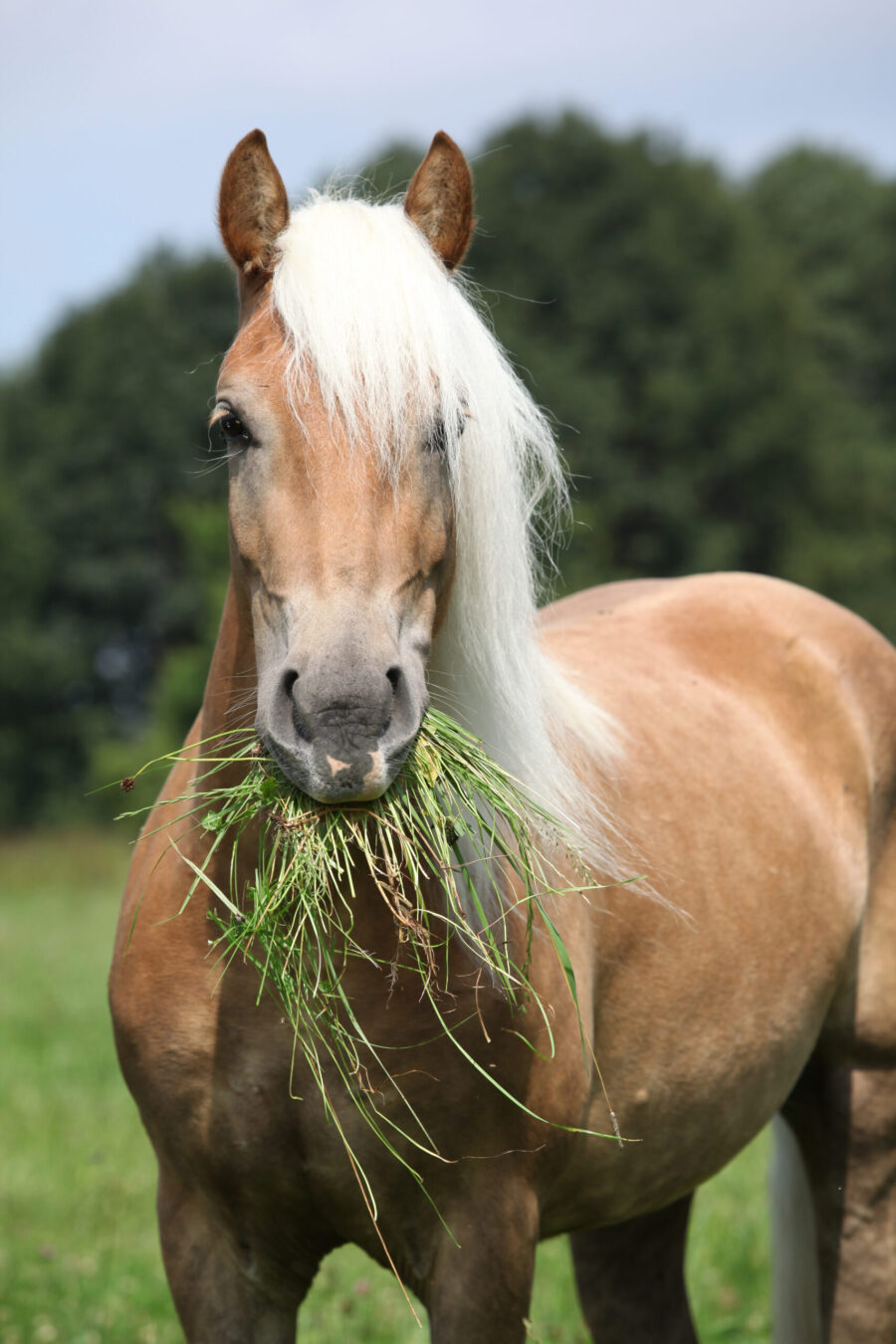Horses need a variety of minerals for their health, to heal after an injury, and to maintain their performance. They can get most of what they need from their diet, but when that’s not enough, a properly balanced mineral supplement can help keep them happy, healthy, and active.
Minerals are inorganic substances that are essential for a wide range of physiological functions in horses. Their bodies use minerals to grow and maintain tissues, in metabolic processes, in maintaining a healthy immune system, and more. What’s more, deficiencies or imbalances can lead to a range of health issues, which is why it’s so important to ensure they get the right quantities of minerals. Horses can usually get the minerals they need from their diet, but there are times when supplements may be necessary. Let’s look at the minerals horses need, why they need them, what they get from their diets, and when supplementation may be necessary to help keep your horse happy and healthy.
A Comprehensive Look at the Minerals Horses Need to Thrive
Horses require a variety of minerals for optimal health, and each one plays a distinct role in their physiological processes. For example, calcium and phosphorous are vital for bone development and muscle function. Potassium and sodium are both essential for maintaining fluid balance. They need sulfur and copper for enzyme function and zinc for immune function. Furthermore, they also need magnesium for nerve function, manganese for metabolism, and iodine for thyroid function and hormone production.
Signs of Mineral Deficiencies in Horses
Horses can experience many health problems when they’re deficient in one or more minerals. Depending on the deficiency, they may experience:
- Poor bone development or skeletal abnormalities
- Muscle weakness, tremors, or cramps
- Irregular gait
- Weight loss
- Behavioral changes
- Lethargy
- Poor coat or hoof health
- Decreased performance
- Anemia
- Delayed wound healing
- Reproductive issues
Balancing a Horse’s Mineral Intake
Unfortunately, mineral deficiencies aren’t the only things horse parents must worry about. Horses also require a precise balance of minerals to maintain health. For example, if a horse has too much calcium relative to phosphorus, it can lead to bone deformities or conditions like osteodystrophy. Similarly, an imbalance of calcium, magnesium, and sodium can affect nerve signaling and lead to issues like tremors or behavioral changes. Moreover, whereas a selenium deficiency can lead to compromised immune responses, too much can be toxic.
Dietary Sources of Minerals for Horses
Horses typically get most of the minerals they need from their diet. Forage like hay, straw, alfalfa, clover, and grasses, are sources of calcium, phosphorous, magnesium, and potassium. They get copper, zinc, manganese, and more from grains and legumes. For sodium, salt blocks can provide what horses need.
However, it can sometimes be challenging for horses to obtain certain minerals in adequate amounts from their diet. Examples include selenium, iodine, copper, zinc, and manganese. When it comes to these minerals, the quantities present in forage, grains, and legumes can vary based on the soil and other factors. What’s more, sometimes the minerals are present in forms that the horse can’t easily absorb.
Equine Leg Magic™ Is a Natural Mineral Supplement That Supports Equine Health
When diet alone isn’t enough, supplementation can ensure horses get the minerals they need to thrive. Equine Leg Magic™ is a natural supplement that features vitamins and a carefully balanced ratio of minerals that are readily available and easy to absorb. Equine Leg Magic is effective for healthy horses, and it also supports healing and metabolic health, protects cells from inflammation, improves stress tolerance and resistance to disease and injury, helps cells respond to insulin, promotes calm behavior, can help performance, and supports overall health! What’s more, Equine Leg Magic also supports:
- Hoof growth and health
- Straight/proper leg growth in foals
- Sweat production
- Soundness
- Flexibility
- Healthy ligaments
- Healthy stifles
- Bone health
- Soft tissue
- Straight pasterns
- Tendons
- Hoof wall
Equine Leg Magic is ideal for any horse parent who’s concerned that their equine friend isn’t getting enough minerals or the right balance. It’s also an excellent supplement for horses with laminitis, joint popping, locked stifle, and arthritis because it helps with healing and supports health on a cellular level.
Visit Equine Leg Magic for more information!








